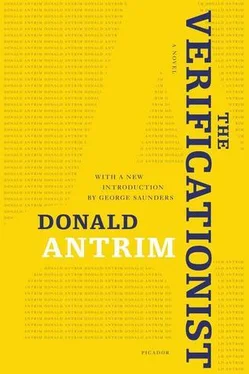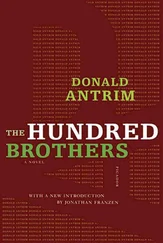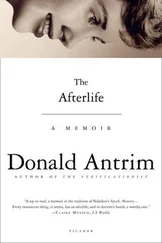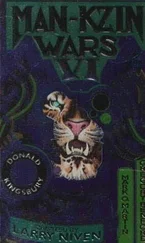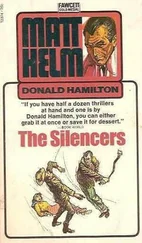“Alcohol-free?”
“Yes.”
“I can do that at home!” she exclaimed. Was she flirting? This was hard to imagine. Then again, it was not hard to imagine. In either case, I had the feeling that I might enjoy a chat with Rebecca. A chat with Rebecca could be just the thing. I asked her, “Do you have trained counselors running ‘Leave It All Behind’ workshops at home?”
“Leave what behind?”
“Anything you want, I guess. This and that, whatever’s not working. It’s up to you.” Why couldn’t I answer this perfectly sensible inquiry about my own outreach program?
“Like my mother and father who don’t sleep in the same bed since my aunt Sylvia came to die of cancer in the spare room?”
“Exactly,” I told her; and I noticed, then, that she was writing in her menu pad. Unfortunately, I was floating too far above her to make out characters or words.
“Can you tell me more about your program?” Rebecca asked me. She spoke with an interested though vaguely detached, clinical tone of voice, and I found myself feeling grateful for her company. I felt immediately at ease; it was relaxing to hang in the air and talk to Rebecca. I began by telling her, in the most general, cursory way, about my work and the work of others at the Institute. I then told her a little about the Krakower Institute itself, its history and philosophical position in relation to the various prominent psychoanalytic schools and traditions. This was an occasion to say a few words about Self / Other Friction Theory and its progenitor, Lawrence Mandelbaum, my analyst and former teacher, who, I recall, once took me aside and said, “Tom, in my experience, people meeting for the first time will disclose to one another most of the significant data of their lives, their dearest wishes and their worst fears, and sometimes, if you listen closely enough, their entire family legacies, usually within a minute and a half.”
“Your teacher said that?”
“He did,” I said. Then I felt myself drifting off course — that is to say, I felt myself floating past Rebecca in a direction that would take me over the fish tank beside the cash register — so, straining hard against Bernhardt’s warm hug, pushing with hands and arms against the Group counselor’s mighty embrace, I reached out with one hand and grabbed hold of a pot lid suspended from a hook bolted into the ceiling.
“Do you believe that?” the girl asked me.
“What?”
“That people tell each other everything in the first few minutes.” The way she watched me, her head slowly turning to follow me drifting gradually, steadily overhead, put me in mind of someone who has, by chance, looking up, noticed an intriguingly shaped cloud passing by, or maybe a kite let out on its string to a height at which it is on the verge of disappearing from view, a tiny, receding object whose distinct shape and brilliant coloring are no longer clearly discernible to the eye, only this black or pale yellow or reddish speck, a diamond or, possibly, one of those winged paper butterflies that weave and swoop across the sky, dragging serpentine tails tied from rags and ripped bedsheets.
“I believe in unlikely and unexpected affinities transacted between objects in a room,” I called down to the pretty waitress. This was, I knew, a pretentious and fundamentally abstruse formulation, the worst kind of evasive, pseudo-academic psychology jargon; but what could I do? — I did not want to lose contact with Rebecca. I have to admit that I felt drawn to her. I clutched the pot lid tightly. The lid was my anchor.
“Objects?” she asked.
“People.”
She agreed, “Yeah, I think I know what you mean. When I met Johnny Raab, I knew right away that we were, I don’t know, similar. Johnny knew it too. We came from different backgrounds, but that didn’t matter. Johnny’s father was a doctor at the hospital — a real doctor.” Here she paused. She made one of those “thoughtful” facial expressions people wear when they want you to know that they are considering their words. (I should say here that I have noticed, many times in my practice, that people having trouble expressing themselves really do furrow their brows — frequently!) Rebecca appeared, actually, embarrassed. Finally she spoke. “I’m sorry. That was rude. I shouldn’t’ve said that about Dr. Raab being a real doctor.”
“That’s all right. Don’t worry about my feelings. I’m comfortable with my professional credentials.”
“I’m glad to hear that,” she said.
Then she exclaimed, “Hey, here we are talking about life and everything, and I don’t even know what I should call you!”
I have to confess that I took this as a blow. Hadn’t she taken my order for blueberry pancakes? Hadn’t she smiled at me across the room when I crawled like a baby across Bernhardt? Should I remind her that we had been introduced? Could she have forgotten? Would she recall Manuel’s name, though not mine? Horrors.
Of course it was true that she was a worker in a family-style eating place. Her blue gingham dress gave her the appearance of a friendly milkmaid. People by the dozens introduce themselves to their waitresses in establishments like the Pancake House. Tired husbands, fathers of young children, chat them up.
“My name is Tom.”
“Tom?” She sounded amazed, as if she did not believe me. This may have been due to a vestigial memory dating from our introduction by Manuel. He had called me Thomas, a minor variation but an important one. Rebecca, at some level, doubted my identity. Here was a crucial, possibly decisive juncture in our relationship.
“Or Thomas.”
“Tom or Thomas? Which do you prefer?”
“Either. It doesn’t matter. Pick one,” I said. Things were getting interesting. What I mean to say is that I am not uninterested, in my professional life, in the business of naming, particularly nicknaming, which I regard as socially acceptable antisocial humiliation.
“What do your friends call you?”
“Friends?”
“Yeah. What do they call you?”
“Tom, I guess. Tom. Tom is fine. Just Tom, Tom,” I repeated like a crazed, levitating obsessive.
“Okay, Tom. I’m Rebecca.”
And what would happen if I told her that I already knew her Christian name? Might she conclude that I had somehow culled information about her private life? Would she think I was a stalker?
A simpler way of asking these questions might be, “Is there any occasion more perilous, more absolutely life-threatening, than those first moments of meeting a new person?”
“You Rebecca, me Tom,” I joked. Predictably, the old Tarzan routine fell flat, and I felt ridiculous for attempting it. How could I be so dumb? Was I made that nervous by Rebecca? I had diminished myself with a corny mode of discourse. Enough was enough. “What were you going to say about Dr. Raab, Rebecca?”
“Well, Tom, I liked Dr. Raab. He developed all these radical surgical techniques. He had a patent on a device that’s used for making collapsed lungs stay attached to the insides of people’s chests. Isn’t that amazing? They always had cocktails at five o’clock on the dot at Johnny’s house. It was pretty obvious that Mrs. Raab had a drinking problem. I mean, you could sit there and watch her face fall apart while she drank. It was like she became a different, older person. In English class we read Dr. Jekyll and Mr. Hyde, and I was convinced that it was about Mrs. Raab. She would pour a glass of bourbon to the top and walk around and never, ever spill. Then she’d lean back in her chair and her face would shatter. My mom and dad don’t drink a drop. My mom’s mom drank so much she died of liver disease. My mom and dad get mad at me if I drink even a little, even though I’m legal. I don’t mind. It’s because they love me. Do you like to drink? Never mind, that’s none of my business. You don’t look like a big drinker. Still, you can never tell about people. I think I want to become a doctor myself. Not a surgeon, though. With Johnny it was as if we’d known each other in the past. It was like we’d been waiting our whole lives to meet each other. We could practically answer each other’s questions without asking any questions.”
Читать дальше
